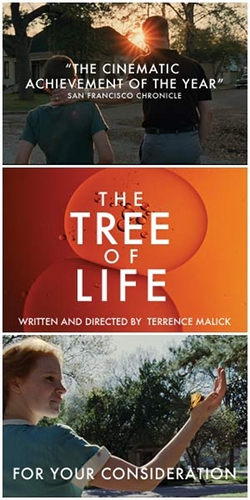Review: Watching TV With The Red Chinese (2012)
Inequality of wealth is a factor in cinema, as it is in life. The kind of picture a director can make with several hundred million dollars is grossly different from one s/he can make for several hundred thousand, and the criteria for judging what results should be different as well. This is not to say that low-budget cinema should be afforded more leniency, merely that a separate rubric should be employed. With that understood, the independently-produced Watching TV With The Red Chinese is awful for reasons that have nothing to do with its limited resources.
…the independently-produced Watching TV With The Red Chinese is awful for reasons that have nothing to do with its limited resources.
Director and co-writer Shimon Dotan has, per a search of his prior credits, been making movies for several decades. This is a bit disquieting, as Watching TV With The Red Chinese would still be bad even if it had been directed by a first-timer, but the complete absence of narrative or compositional focus would at least be more understandable. At least ten characters could easily be the protagonist, though none of their stories are sufficiently developed for that to be the case. The nominal main character—who disappears from the narrative for long stretches and who when present displays little apparent purpose—is a young white American named Dexter who befriends three new neighbors, exchange students from the People’s Republic of China, and attempts to help them get acclimated to their new surroundings. We’re informed that this is all taking place in New York in 1980, although within seconds of this title card appearing, a subway train that wasn’t introduced until 1999 rolls past. This is not intended to nitpick, but there are literally two indications in the entire picture that this story actually takes place when the title card says it does: one vintage license plate, and a few minutes of somber reflection on the assassination of John Lennon.
The lack of attention to historical detail, and even the muddled narrative, are less of a problem than the fact that the camera is all over the place. Not in the sense of it being handheld, but rather in the sense that the framing is so careless that the focal point of any given shot is completely arbitrary and has nothing to do with anything, let alone serving the movie artistically.
In spite of the film being a total mess from an artistic standpoint, its cast is amiable and occasionally quite attractive, although the character’s they portray are so inconsistent that, for one example the male lead (Ryan O’Nan) finds himself suddenly playing a completely different scene halfway through one. It feels like the actor lunging for the door to get out, not the character.
In spite of the film being a total mess from an artistic standpoint, its cast is amiable and occasionally quite attractive…
The great shame of it all is that the story buried underneath all this subpar filmmaking has potential. Perhaps in Luke Whisnant’s novel, on which the movie is based, things are different; why the movie felt the need to transpose the action from Cleveland to New York and then ground it in nothing that specifically requires it to take place in New York is baffling, especially when the way the characters interact and the relative cultural isolation in which they do so are more like what one would expect in a smaller city. Much as the distinction drawn in the introduction between big- and small-budget cinema, the implication should not be that people in smaller cities (or anywhere that isn’t New York) are cloistered provincials, just that New York is different.
Which brings this, full-circle, to the scale on which Watching TV With The Red Chinese was produced. Beating up on a picture like this feels like bullying. The fact remains that no picture has to be bad. Some are destined to be good for what they are, if they are, but even if that modest level of success is the ceiling, care and attention should be paid to reach that ceiling. This movie has neither, and falls far short of its potential. In the hands of a more competent writer and director, this could have been good. But it wasn’t, so it isn’t.




















 Review: Funny Games (2007)
Review: Funny Games (2007) Review: Osaka Elegy (1936)
Review: Osaka Elegy (1936) Review: Miss Bala (2011)
Review: Miss Bala (2011) Review: Hidden (2005)
Review: Hidden (2005) Review: Watching TV With The Red Chinese (2012)
Review: Watching TV With The Red Chinese (2012)


